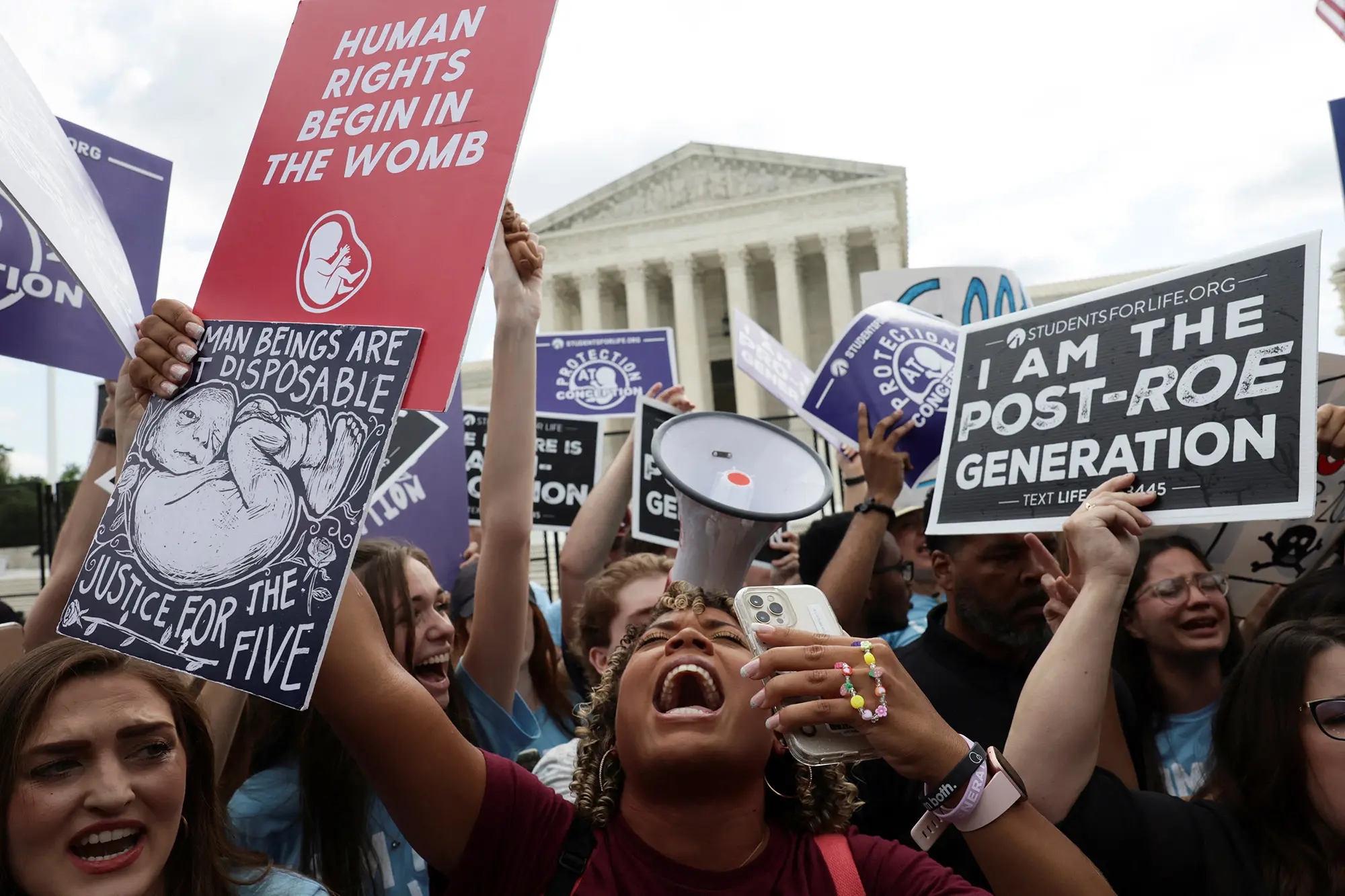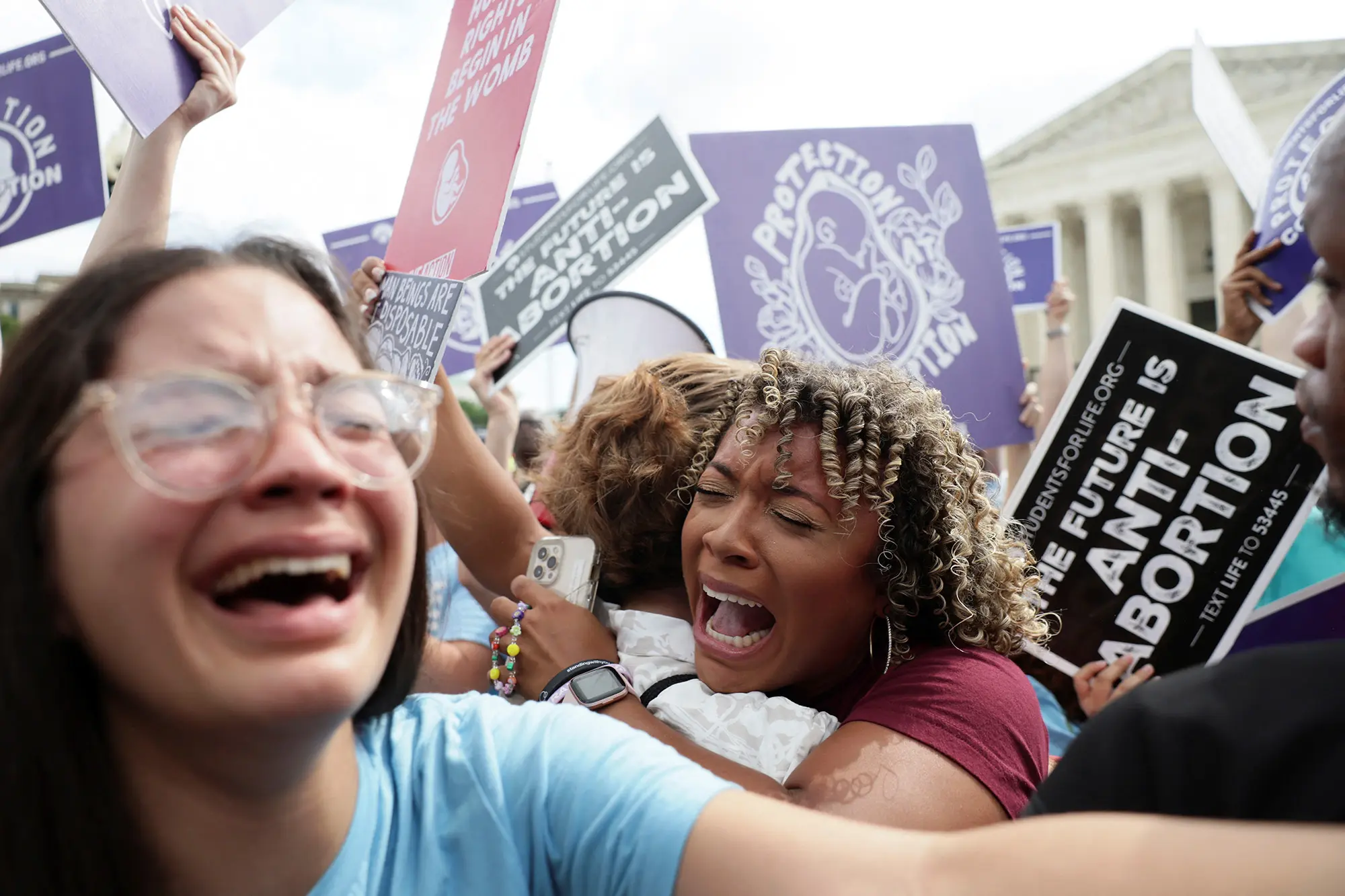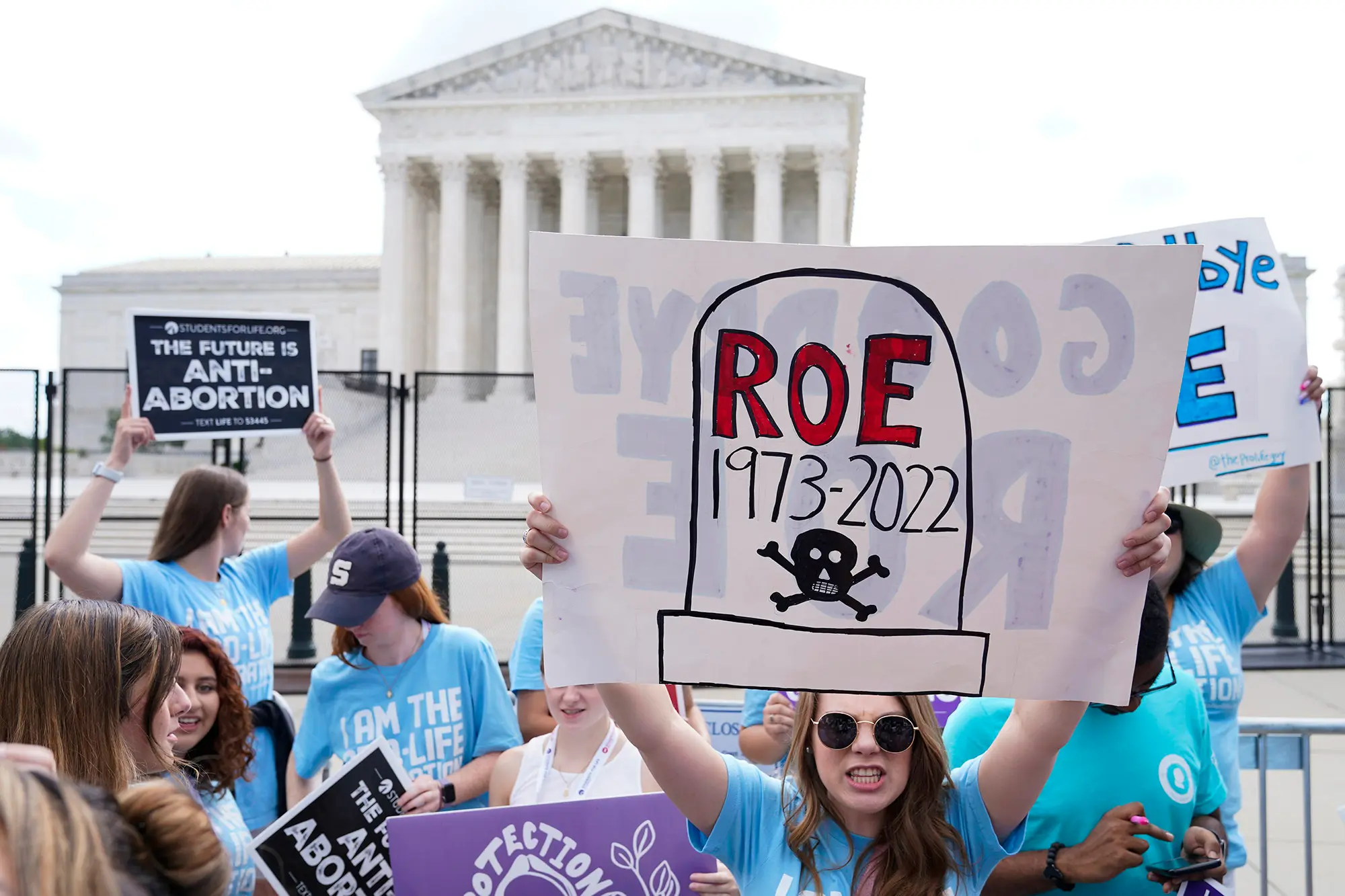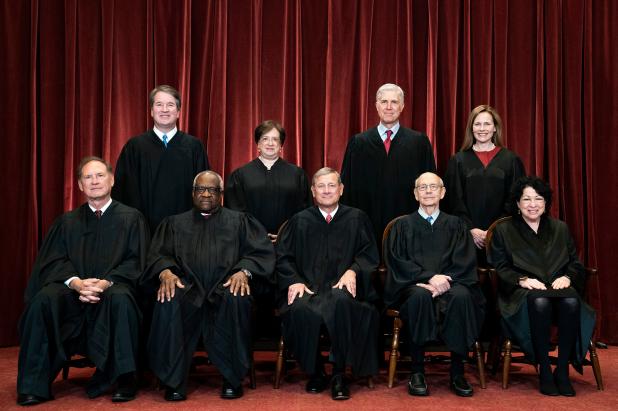Roe v Wade, the Supreme Court’s landmark decision that legalized abortion in the United States, has been overturned by a Mississippi law prohibiting abortions after 15 weeks of pregnancy.
A 1992 case, Planned Parenthood v. Casey, was overturned Friday by Justice Samuel Alito. The court found that state laws restricting abortion should not impose an “undue burden” on women seeking the procedure.
Abortion poses a difficult moral dilemma,” Alito wrote in his opinion piece. There is nothing in the Constitution that prevents the citizens of each State from regulating or prohibiting abortion. Neither Roe nor Casey possessed the authority to make the final decision. Those decisions have been overturned, and the people and their elected representatives now have that authority back.””
More than eight weeks after a draft version of Alito’s opinion was leaked to Politico, the Supreme Court issued its decision. Activists for both sides of the abortion debate gathered outside the courthouse following Friday’s ruling, but no arrests or violence were immediately reported.
In the leaked draft, Alito said that Roe was “egregiously wrong from the start,” using language retained from it. “Its reasoning was feeble, and the decision has had damaging consequences,” she said. Far from ending the national debate on abortion, Roe v Wade and Case v. Casey have stoked it.

In his opinion, Clarence Thomas, Neil Gorsuch, Brett Kavanaugh, and Amy Coney Barrett joined Alito. Separate concurring opinions were filed by Justices Thomas, Kavanaugh, and Roberts, who all agreed with Alito’s decision.
While Alito’s “thoughtful and thorough, but those virtues cannot compensate for the fact that its dramatic and consequential ruling is unnecessary to decide the case before us,” Roberts questioned whether overturning Roe and Casey was necessary to uphold the Mississippi abortion law.

A 15-week abortion ban “provides sufficient time, absent rare circumstances, for a woman ‘to decide for herself” whether to terminate her pregnancy,” the chief justice continued before adding that Alito’s opinion and the dissent by liberal Justices Stephen Breyer, Sonia Sotomayor, and Elena Kagan “display a relentless freedom from doubt on the legal issue that I cannot share.”
“Because the Constitution is neutral on the issue of abortion, this Court also must be scrupulously neutral,” Kavanaugh stated in his concurring opinion. The Supreme Court’s nine unelected justices lack the constitutional authority to override the democratic process and mandate an abortion policy for the country’s 330 million citizens, whether pro-life or pro-choice.
Abortion was legal in the United States up to the point of viability.
When it came to Roe v Wade, Kavanaugh said, “instead of remaining neutral as required by our founding document, the Court chose a side and unilaterally decreed that abortion was legal in the United States up to the point of viability.” As a result of the Court’s decision today, the people will again be able to decide on abortion through the democratic processes established by the Constitution.”

He agreed with Alito that Friday’s decision does not affect previous Supreme Court decisions that legalized interracial and same-sex relationships or enshrined a woman’s legal ability to obtain and use contraception.
Alito wrote, “[W]e emphasize that our decision concerns only the constitutional right to abortion and not any other right… Nothing in this opinion is meant to cast doubt on precedents that don’t revolve around abortion.
Courts should review all precedents and decisions such as Roe and Casey based on “substantive due process,” which states that rights not enumerated in the Constitution are protected by the Fifth and 14th Amendments, according to Thomas’s dissent.
It is Thomas’ position that, because any substantive due process decision is “demonstrably erroneous,” “we must correct the error established in those precedents.”

They accused the majority of abandoning the “balance” struck by Roe and Casey on abortion in their dissent.
In the majority opinion, “it states that a woman has no rights to speak of from the moment she is fertilized,” they wrote. As a result, she can be forced to carry a pregnancy through to term, even if it comes at extraordinary significant family costs.
Recent polling shows that most Americans support Roe v Wade
One thing is clear: “Women’s rights will be curtailed, and this decision will erode their status as free and equal citizens,” they said. The decision will allow 22 states to impose total or near-total abortion restrictions, despite recent polling showing that most Americans support Roe v Wade.
Alabama, Arizona, Arkansas, Georgia, Idaho, Iowa, Kentucky, Louisiana, Michigan, Mississippi, Missouri, North Dakota, Ohio, Oklahoma, South Carolina, South Dakota, Tennessee, Texas, Utah, West Virginia, Wisconsin, and Wyoming are the states that make up the rest of the group.
Republicans blocked an attempt by Democratic lawmakers to codify Roe v Wade into federal law in the Senate last month. The measure received only 49 votes. But unfortunately, that was not enough to pass a test vote.

There will be no rest for the Justice Department, Attorney General Merrick Garland said in a statement. “We stand ready to work with other arms of the federal government that seek to use their lawful authorities to protect and preserve access to reproductive care,” he said in a statement, in addition to protecting providers and those seeking abortions in states where they are legal.
By highlighting the FDA’s approval of Mifepristone for use in medication abortions, the attorney general made a point of pointing out that states can’t ban it “based on disagreement with the FDA’s expert judgment about its safety and efficacy.”
Several legal experts were confident that the six-member conservative bloc would uphold the Mississippi law in the case of Dobbs v. Jackson Women’s Health Organization, which was argued on December 1. Although both sides had stated that the Supreme Court would have to consider Roe v Wade when deciding on the future of Mississippi law, it was less clear after oral arguments.
Politico published a leaked draft of Alito’s opinion in early May, making national headlines for the unprecedented breach of the Supreme Court’s tightly guarded decision-making process. To find the leaker, Roberts has ordered an investigation.
